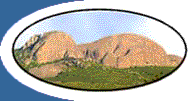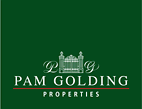Home of olives in Drakenstein
2009-05-14
Lise Beyers
FOR many years the Drakenstein Valley has been synonymous with the production of excellent wines. But few people know that this area was the birthplace of the olive industry in South Africa, and still today it is the front-runner of this industry. Well-known Wellingtonner, Piet Cillié, later known as Piet California, was the true pioneer of the olive industry. The Cillié family farmed on the farm Rhebokskloof, on the horseshoe in Wellington. Cillié was at the forefront of the fruit industry in the late 1800’s - so much so that the government sent him to California in 1893 to investigate the successful fruit farming there. Amongst citrus trees and other ‘strange fruit’ which he brought back, were olive trees. Cillié was very enthusiastic about the future of olive farming, and himself planted hundreds of trees on his farm. This enthusiasm was shared with Jan Minnaar, at that time the owner of De Hoop farm in Paarl. Not only did Minnaar successfully grow olives, but he was the first person in South Africa to press olive oil after converting a wine press for this purpose. His oil was of such good quality, that in 1907 he won an award at the London Show for the finest oil produced in the British Empire. Derek Clift still farms with olives at De Hoop, and much of the oil that is pressed here, comes from trees which were originally planted by Minnaar. Clift however had a setback earlier this year, when the fire on Paarl Mountain destroyed most of the trees, which were then fully laden with olives. But he is optimistic, as the trees which were thought to have been completely destroyed, are starting to sprout again. In 1935, the Costa’s actively started to produce olive oil on their Paarl East farm and they soon had a monopoly in the olive industry. But in recent years olive oil has become a sought after commodity, and olive plantations have sprung up all over the area. Olive oil is considered far healthier than other cooking or salad oils, and with people becoming increasingly health conscious, the sale of olive oil has rocketed in South Africa over the past ten years. Reni Hildenbrand bought Piet Cillie’s farm in 1991, with the aim of making wine. But when she started investigating the rich history of the farm she became fascinated in the olive industry. Hildebrand travelled to the heart of the olive industry in Tuscany, Italy, to learn all she could. On her return she planted 3000 olive trees, and in 1996 she imported an olive press from Italy and started producing her own oil. Through the years she has become very involved in the industry and has become affectionately known as the olive lady. But Hildenbrand is concerned that the industry, which has grown from small beginnings, to an agricultural giant, is not being regulated. “The huge overseas olive oil market has strict regulations in place to determine the quality of the oil.” Extra virgin olive oil is the champagne of oils, but many times, a bottle that is so labled does not conform to the standards. It must have a reading of less than 0,8% of fatty acids, and be free of any defects such as rancidity, being muddy and winey, as well as containing sediment. This oil comes from the first pressing of the olives and throughout this process, it must be kept at a temperature below 27˚C. Olives must be pressed immediately after picking or at the most 24 hours later, and be pressed under hygienic conditions. And the olives must be hand-picked to prevent them from becoming bruised. “Our market has been flooded by cheap imports which often are labelled extra virgin oil, but this is not the real thing. “Surplus oils from Spain, Portugal and Italy which are of an inferior standard are also mixed and bottled, then sold here as extra virgin oil. This oil is then just as unhealthy as other cooking oils. “Apart from real extra virgin oil being delicious, it is very healthy.” In 2002 it was recorded that South Africa imports one million litres of olive oil annually, and only produces 300 000 litres. “Members of SA Olive try themselves to set standards and encourage olive oil producers to bide by this. “We have our own certification label on our products which shows that the oil is truly extra virgin, and importantly as well, the date of production. “Olive oil only has a shelf life of 18 months. Thereafter the quality deteriorates drastically. “But still, many role-players in the olive industry are out to make a quick buck, and ignore any standards.” Hildenbrand does see things changing in the future, but only if the entire olive industry takes a united stand against inferior olive oils.
More
News
|


